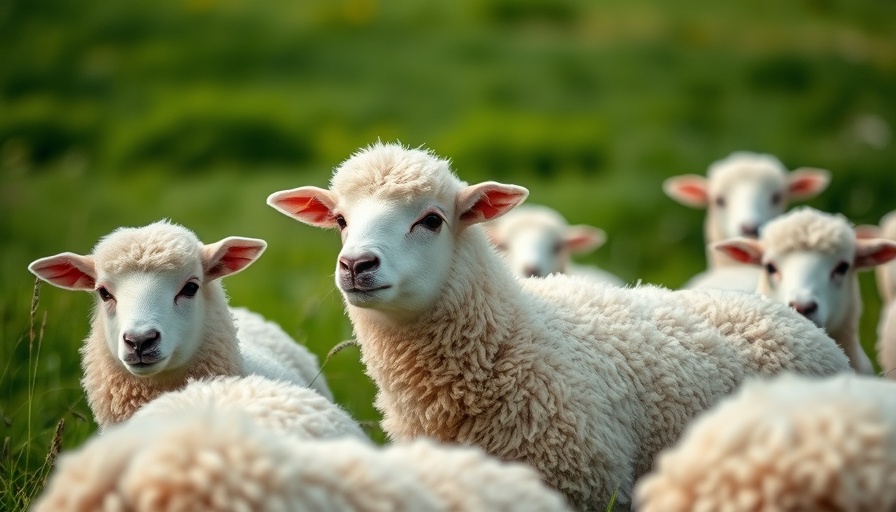
The Controversial Accusations Against New Zealand and Ireland
As nations grapple with the impacts of climate change, New Zealand and Iceland find themselves embroiled in accusations that they are attempting to downplay their livestock emissions. These claims, made by a coalition of scientists, suggest that the two countries may be manipulating data to appear as though they are making more progress toward sustainability than they truly are. With livestock farming being a significant contributor to greenhouse gas emissions globally, scrutiny of these agricultural giants is only increasing.
Understanding the Scientific Background
The agricultural sector is responsible for over 14% of global greenhouse gas emissions, a substantial percentage attributed primarily to livestock production. Methane emitted from enteric fermentation in ruminants, such as cattle and sheep, is a potent greenhouse gas with a warming potential far greater than carbon dioxide over a short-term period. This brings about a pressing need for transparency regarding the emissions coming from countries with high livestock outputs.
Why These Allegations Matter
For countries like New Zealand and Ireland, where livestock farming plays a cornerstone role in their economies, accurately reporting emissions is critical not only for climate commitments but also for preserving international relations and trade agreements tied to agricultural exportation. Accusations that they are covering up emissions could lead to broader implications, including damaging reputations, affecting trade deals, and hindering upcoming discussions on climate policy.
Global Context and Comparisons
These allegations against New Zealand and Ireland are not occurring in a vacuum. Globally, nations are under pressure to meet the commitments of the Paris Agreement, which seeks to limit global temperature rises. Countries such as Brazil, with its significant cattle ranching industry, and the United States, known for both beef and dairy production, are similarly under scrutiny but have not yet faced accusations as pointed as those aimed at New Zealand and Ireland. This highlights a trend where public accountability may be perceived as unevenly applied.
Future Implications and Opportunities
If proven true, these accusations could set a precursory alarm for other agricultural nations concerning their emissions data. Countries may need to invest more in independent audits of their emissions reporting processes to avoid backlash and potential isolation in international dialogue. This could trigger a trend toward increased transparency across the globe, fostering better practices in combating climate change.
Counterarguments and Perspectives
It is also fair to examine the perspective of New Zealand and Ireland, who argue they are committed to improving emissions technology and practices. The farmers and policymakers often emphasize their roles in sustainable farming and renewable energy initiatives designed to lower their carbon footprints. They assert that criticisms may overlook the advancements made in emissions reduction and animal farming practices that can coexist with higher herd productivity.
Taking Responsibility for Global Emissions
The responsibility now lies with the scientific community and affected nations to advocate for a standardized approach to livestock emissions that reflects not only livestock numbers but also advancements in methane capture technology and grazing practices that can mitigate impacts. With ongoing conversations about sustainability and economic growth, transparency, and accurate reporting can lead to improved global business practices in livestock farming.
Call to Action: How Can We Support Sustainable Practices?
It is essential for all stakeholders—from farmers to consumers—to champion transparency and sustainability in livestock practices. Understanding the impacts of our food choices and supporting policies that promote green practices can contribute significantly to the fight against climate change.
 Add Row
Add Row  Add
Add 



Write A Comment